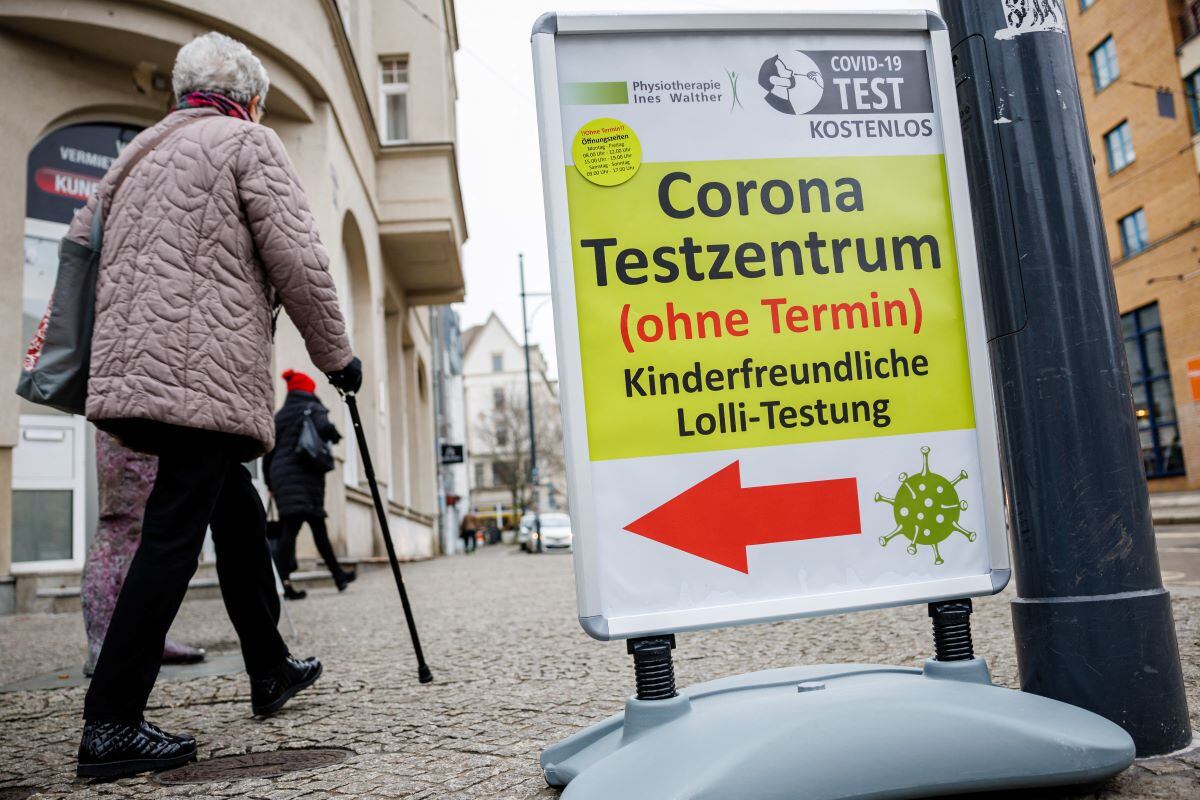Researchers from the Pasteur Institute (France), the University of Sao Paulo and the Oswaldo Cruz Foundation (Brazil) have documented the case of a 38-year-old man who continued to test positive for coronavirus covid-19 for at least 232 days.
“Of the 38 cases we tracked, two men and one woman were atypical in that the virus was continuously detected in their body for more than 70 days”, explains Marielton dos Passos Cunha, the first author of the article, which has been published in the scientific journal Frontiers of Medicine.
LOOK: Beijing records its worst record for coronavirus cases in a year and a half 5 days before the Winter Games
This is not the first evidence that the virus can remain active for longer than expected even in patients with mild symptoms. In early 2021, other Brazilian researchers reported similar cases.
They analyzed 29 samples of nasopharyngeal secretion from patients who tested positive for the covid-19 test on the tenth day after the onset of symptoms and inoculated into cells grown in the laboratory. In 25% of cases, the viruses present in the samples were able to infect cells and replicate in vitro. Therefore, in theory, other people could become infected if they came into contact with the droplets of saliva expelled by 25% of these patients at the time of material collection.
- Russia registers more than 120,000 coronavirus infections in one day, its highest record of the entire pandemic
- Taliban host a pregnant New Zealand journalist prevented from returning to her country by the coronavirus
- Ómicron: when does a person infected with coronavirus stop being contagious (whether or not they have symptoms)
The risk appears to be even greater for people with compromised immune systems. In an article published in June 2021, these same researchers described a case of infection that lasted at least 218 days. The patient was in his 40s and had undergone aggressive cancer treatment before contracting Covid-19.
Additionally, an article published in the New England Journal of Medicine in early December 2020 reported the case of a 45-year-old immunosuppressed man with an autoimmune blood disorder in which the virus continued to replicate for 143 days. And an article published in Cell in late December outlined the case for a leukemia patient in which the virus continued to replicate for at least 70 days, although there were no symptoms of Covid-19.
In this new study, the difference between women and men in the duration of viral activity was not significant (with a mean of 22 days and 33 days, respectively). As for the three atypical cases, the virus remained detectable for 71 days in the woman and 81 days in one of the two men. None of them had comorbidities and all had mild symptoms of Covid-19.
The other man continued to test positive for the coronavirus for 232 days (April to November 2020), after which he tested negative three times for PCR. Has VIH, the virus that causes AIDS, since 2018, but has no detectable viral load thanks to the antiretroviral therapy.
“Just because you’re HIV positive doesn’t mean you’re more susceptible to other infections, because you’ve been on therapy since you were diagnosed. Its ability to respond to an infection by another agent is comparable to that of any other individual, and it did respond to the coronavirus when infected. It is not immunosuppressed, like cancer patients, people with autoimmune diseases or transplant recipients, for example”, explains Paola Minoprio, one of the leaders of the work.

According to the researchers, his seropositive status does not explain the long duration of his coronavirus infection.
It would be necessary to compare many patients infected simultaneously by the VIH and the SARS-CoV-2 with a suitable control group to see if any genetic or immune traits of the host could be associated with such prolonged viral excretion.
The patient underwent weekly tests that detected the persistence of the infection, and virus samples were periodically sequenced to show that this was not a case of reinfection and that the virus was not only continuing to replicate, but was mutating.
The strategies used by the virus to escape the immune system during infection were traced, showing that the viral load decreased when there were more neutralizing antibodies, and that the virus was able to circumvent the body’s defenses to re-accumulate the load. The cycle repeated itself, forcing the production of more antibodies until the viral load dropped again.
“It is important to observe patients like this because we can learn more about how the virus mutates and which mutations can lead to variants of concern,” Cunha says.
The study patient was infected by the lineage B.1.1.28, also called P1, which entered Brazil in early 2020. The researchers did not detect mutations in the virus isolated from the patient that could justify its classification as more transmissible or more resistant to the immune system.
_________________________________
- The threats of anti-vaccines to a COVID-19 patient who they accuse of being an actor who faked the disease
- He was kidnapped at 16 and released at 58: the story of the man who spent his entire life in captivity
- Jacinda Ardern postpones her wedding due to coronavirus outbreak in New Zealand
- Woman refused to wear a mask on Miami-London flight; the pilot’s response will surprise you
- They run over a reporter in full live broadcast: “my whole life passed before my eyes”
Source: Elcomercio

:quality(75)/cloudfront-us-east-1.images.arcpublishing.com/elcomercio/TFXDQ7OKTJH5ZOGLT6Y5CCG4IY.jpg)

:quality(75)/cloudfront-us-east-1.images.arcpublishing.com/elcomercio/2I2ZZIHMG5CTTNSPETWH27DVE4.jpg)
:quality(75)/cloudfront-us-east-1.images.arcpublishing.com/elcomercio/4O2Q5KMIPBEBTEPQQIXV6DMRUM.jpeg)

:quality(75)/cloudfront-us-east-1.images.arcpublishing.com/elcomercio/O5GX54NEIJCEHLXBBX3I4VE3DI.jpg)
